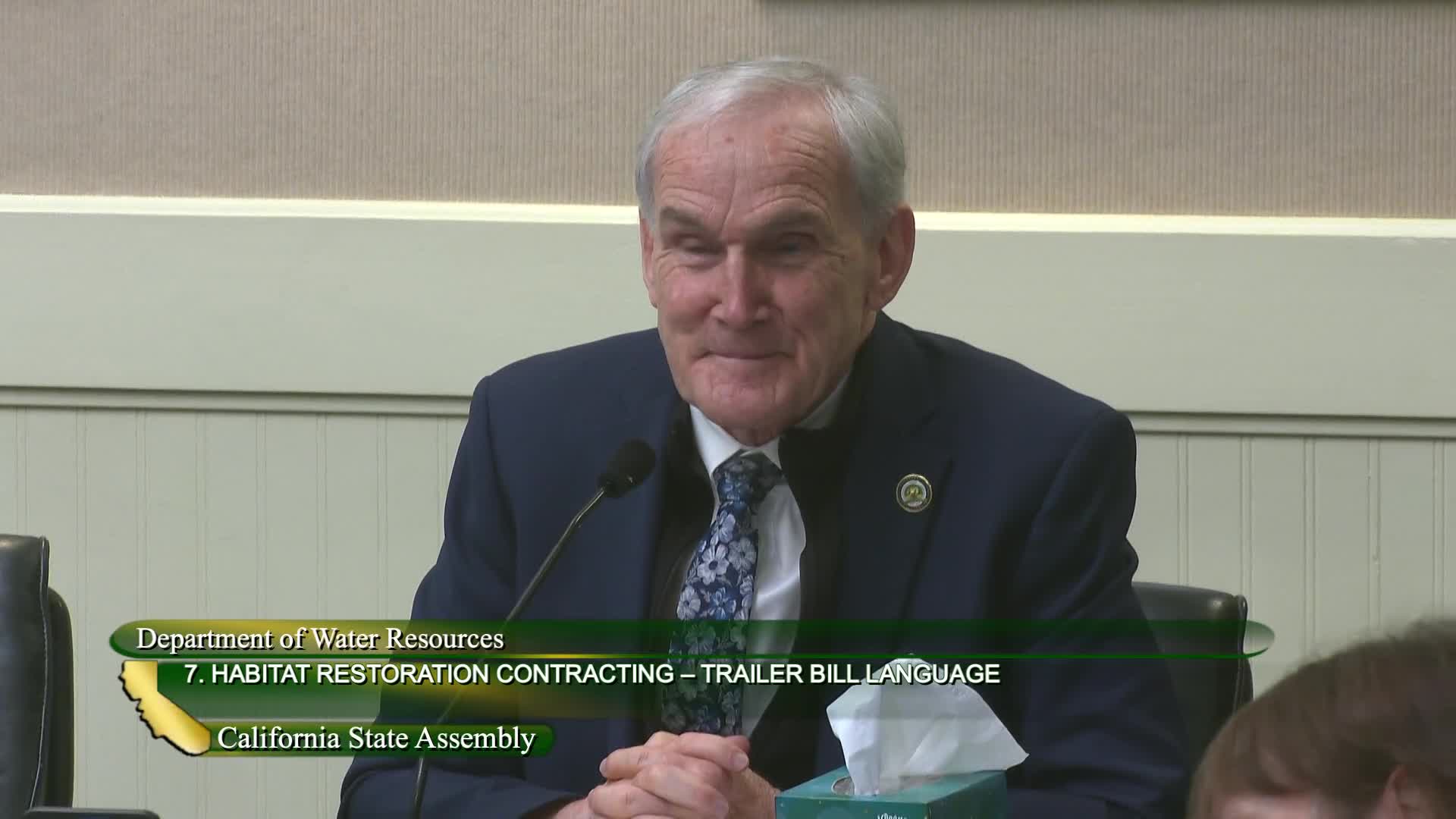DWR seeks trailer bill authority to accelerate multi-benefit habitat projects with a "full delivery" contracting model
Get AI-powered insights, summaries, and transcripts
Subscribe
Summary
Department of Water Resources requested trailer bill language to allow a single contract covering planning, design and construction for multi-benefit habitat restoration projects to reduce adaptive redesign delays and shorten project delivery timelines.
The Department of Water Resources presented trailer bill language (TBL) to enable a full-delivery contracting model for multi-benefit habitat restoration projects. Brian Fuller (DWR) described the rationale: large riverine and floodplain restoration projects often require design adaptations during in-field construction; a single full-delivery contract that encompasses planning, design and implementation enables iterative adjustments in the field while holding a contractor accountable for verified environmental outcomes.
Fuller said DWR developed the TBL with Department of General Services and Department of Finance and presented Lookout Slough and other floodplain projects as prior examples where a full-delivery approach reduced timelines. He told the committee that typical large restoration projects can take 10 to 15 years under traditional segmented procurement; the full-delivery model has produced completed projects in about six years in other states and instances.
Members asked whether public input, prevailing-wage requirements and environmental review would be preserved under the new authority; DWR responded that the proposed language retains public process, applicable labor law compliance and CEQA obligations and that grants or agreements would still require appropriate public engagement and environmental documentation.
Why it matters: natural infrastructure projects that restore floodplains and habitats are time-consuming under the sequential design-bid-build model; a full-delivery contracting approach can reduce construction time, retain adaptive design flexibility and deliver ecological outcomes sooner.
Next steps: DWR will provide final TBL language for committee review and noted it plans to use the model for large multi-benefit projects where site uncertainty makes fixed design-bid-build inefficient.
